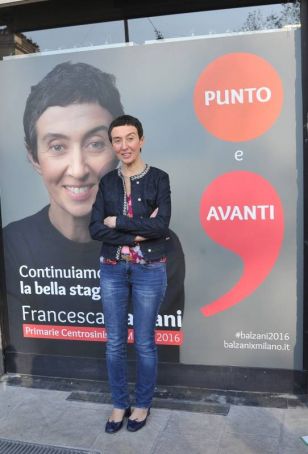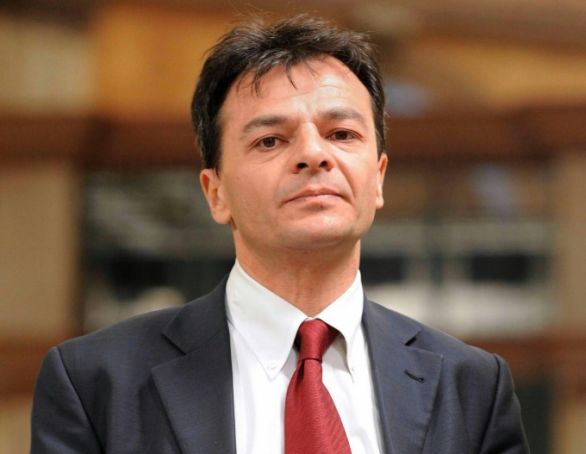Tensions in the centre left risk transforming administrative polls into a referendum on the leader himself.
By Laura Clarke
Prime minister and Democratic Party (PD) secretary Matteo Renzi has a major problem on his hands, and it is one that not even his notable spin-doctoring skills can do much to hide. The ordinarily fragmented and fractious centre left seems more fragmented and fractious than ever before, and the divisions look set to affect the outcome of local elections in the spring to the advantage of the anti-establishment MoVimento 5 Stelle (M5S) and centre right. Supporters evoke the spectre of the near-debacle in last year’s administrative elections and the loss of the Liguria regional government, just a year after the PD took over 40 per cent of the vote in Italy in the 2014 elections for the European parliament.
Since then the prime minister’s reformist agenda and ostensible shift to the centre (and right) have angered supporters and alienated allies. Renzi’s sometimes authoritarian leadership style – both as head of government and as PD secretary – haven’t helped either. And so the spring administrative polls (an exact date has not been set, although they are most likely to be held in mid-June) in Bologna, Cagliari, Milan, Naples, Rome, Turin, Trieste and hundreds of other smaller municipalities across the country could be as much a referendum on the leader himself as an appraisal of policies and programmes on the ground.
National and local conflict
On the national level the battle has been on two fronts: between Renzi and his many critics within his own party on the one hand; and between the PD and other formations to the left of the party including the newly created Sinistra Italiana (a movement combining defectors from the PD, members of the left-wing Sinistra Ecologia Libertà (SEL) and former representatives of M5S) on the other.
At local level the tension has translated into reluctance or refusal on the part of former coalition partners to reconfirm alliances with the resulting risk of tricky second-round ballots.
Not even the outcome of regional elections in France late last year, when political forces on both sides had to rally in the second round to prevent the extremist Front National from seizing power, served to persuade centre-left politicians of the need to join forces to stem the growing support in Italy for populist or extremist parties such as the Eurosceptic M5S and the anti-immigrant Northern League.
Milan primaries
The problems are epitomised in Milan, where centre-left primaries to select a candidate to replace the former communist mayor Giuliano Pisapia are scheduled for 6 and 7 February. At the time of writing, four candidates looked set to run. After much hesitation in Milan the official PD leadership settled for Giuseppe Sala, the EXPO 2015 CEO and city manager under the former centre-right Letizia Moratti administration. However, Sala faces opposition from two members of a left-wing minority within the PD. The first is current Milan deputy mayor and budget councillor Francesca Balzani, who has the formal backing of the outgoing mayor Pisapia. The second is welfare councillor Pierfrancesco Majorino. There is also another non-political candidate, the Milan director of Italian Union Sport for All (UISP) Antonio Iannetta. SEL, a coalition partner in the Pisapia administration, has asked the two left-wing candidates to work together to beat Sala in the primaries on pain of withdrawing its support.
The problem of Rome
In Rome the situation looks even more difficult. The city faces elections following the ouster of PD mayor Ignazio Marino last October, ostensibly over an expenses scandal after little over two years in office. Renzi courted several people in the search for a candidate for primaries on 6 March before the current deputy chamber of deputies speaker and chief of cabinet under the former Rutelli city administration Roberto Giachetti eventually stepped forward.
The ex Radical and habitual hunger striker who is considered very close to Renzi is being challenged by Roberto Morassut, the former Rome executive councillor for urban planning under Walter Veltroni and now a member of the chamber of deputies for the PD. His decision to throw his hat in the ring came late in the day and had the stated aim of “saving” the primaries, which in the presence of only one strong candidate would have otherwise risked being a farce. However this may be of little comfort in a city where the PD is in ruins following its poor handling of the Marino affair, and where opinion polls are showing M5S in the lead in the wake of the Mafia Capitale scandal concerning alleged infiltration by a crime syndicate into municipal contracts that involved numerous politicians on both sides.
Then there is the problem of Marino himself. In late January the ex mayor put an end to speculation by announcing that he would not run in the primaries on grounds they were “hypocritical”. However, he might still decide to run against his own party in the city elections and he could probably muster considerable grass-roots support.
Another spanner in the works in Rome is represented by Stefano Fassina of the recently created Sinistra Italiana. Fassina is a former PD member and one of the prime minister’s harshest critics. He announced his intention to run for mayor last November and so far he has resisted calls to take part in primaries in the name of coalition unity.
Naples, Turin and Bologna
In Naples the situation for Renzi seems equally dire. Due to divisions within the PD by early February no fewer than four party candidates for primaries were shaping up, including former city mayor and Campania regional governor Antonio Bassolino. His decision to run got a cool reception from the highest echelons of the PD, which eventually fielded his former darling, MP Valeria Valente, to challenge him. In any event a local opinion poll conducted in January put the centre-right candidate Gianni Lettieri, a local entrepreneur who ran unsuccessfully in 2011, safely in the lead, followed by incumbent mayor Luigi De Magistris on a civic list and M5S, with the centre left a close fourth.
In Turin and Bologna the incumbent centre-left mayors Piero Fassino and Virginio Merola have announced their intention to stand for re-election with the blessing of the PD. However competition from former metalworkers union leader Giorgio Airaudo who is running for SEL (currently a coalition partner), could force the competent Fassino into a difficult second-round ballot against 31-year-old private Bocconi University graduate Chiara Appendino of M5S.
Centre-right disarray
The only comfort for Renzi is that the centre right is in a similar state of disarray and is also struggling to find convincing candidates for both Milan and Rome. In the capital the two names that keep cropping up are local businessman and independent city councillor Alfio Marchini, who is already running on a civic list, and Giorgia Meloni, leader of the right-wing Fratelli d’Italia. Ex Lazio regional governor Francesco Storace, leader of La Destra, has also announced his intention to run. In Milan the situation is even less clear; at the time of writing Stefano Parisi, former Fastweb CEO, looked to be the most likely candidate. However, the centre right will almost certainly wait to put its cards on the table until after the centre left has fielded a clear candidate.
The article is published in the February edition of Wanted in Rome
For more articles by Laura Clarke see her blog, Laura in Italy.
Photos from top to bottom: Roberto Giachetti, Francesca Balzani, Stefano Fassina.




















